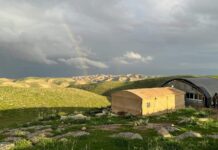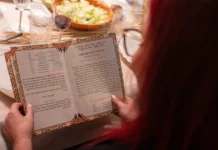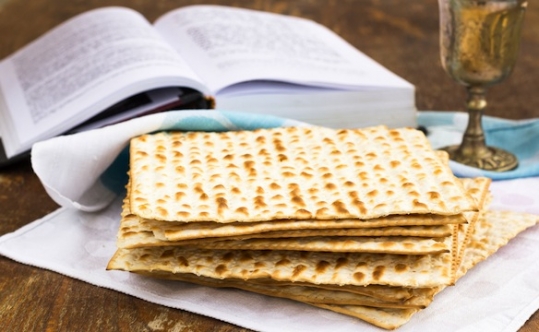For the UA Jewish community, spring is a time of holy tradition, community and storytelling with the annual celebration of Passover.
Rachel Ungar, a UA Junior and president of the Hillel Jewish Student Association, said that she believes that the story behind Passover is significant because of its underlying message of unity and how it emphasizes the importance of acknowledging one’s past.
Passover dates back around 1300 BCE Egypt, when the people of Israel were under Pharaoh’s rule until the prophet Moses was sent by God to demand their freedom, according to the Book of Exodus in the Torah.
Before the last of ten plagues on Egypt, Moses told the Israelites to sacrifice a lamb and to paint its blood on their door so that the Angel of Death would pass over their home, hence the name Passover, according to the story.
“Basically, the message is don’t take what you have for granted and understand where you come from,” Ungar said. “Know your past and be thankful for it.”
As an honorary way of remembering this story, it is customary in Jewish tradition to perform a “Seder,” the Hebrew word for “order,” which starts after dusk on the first night of Passover and the second night if located outside of Israel.
A traditional Seder can be very fun and interactive and usually starts with a reading of the biblical tale, followed by the drinking of blessed wine and eating special foods like Matzah bread, Ungar said.
Matzah is an unleavened flatbread is generally the only kind of wheat product that is allowed to be eaten on Passover, because when the Israelites were freed, they left in such a hurry that they could not wait for the dough to rise.
Linzi Oppenheimer, UA sophomore, said that although Matzah bread serves as an important symbol behind the holiday, it is not the most appetizing food.
“We also eat gefilte fish, which is a delicious fish loaf, also chicken, chopped liver and matzo ball soup are eaten at the Seder,” Oppenheimer said.
On the day before Passover, typically, most conservative Jewish families will remove anything considered non-kosher like chametz, the Hebrew word for leavened bread, and set out special dishes, utensils, cups and even tablecloths that have not been contaminated by non-kosher items in preparation for the holiday, Ungar said.
Passover is an eight-day holiday, beginning with the two days, which commemorate the freeing of the slaves and ending on the last two days, which celebrates Moses parting the red sea. During the those days, working, writing, driving and even turning on electronic devices is not permitted, according to Jewish tradition.
Oppenheimer said that she believes Passover is one of the most observed Jewish holidays and that it promotes the value of tradition, storytelling and the importance of freedom.
“This is one of the most important Jewish holidays, because it is an example of the awesome power of God’” Oppenheimer said. “We don’t really pray during this holiday, but we do invite friends and family to celebrate with us. It promotes family and giving.”
Jacob Adler, UA professor of philosophy and the rabbi of Temple Shalom, said it is important for students to inform themselves on beliefs that differ from their own to understand otherwise foreign perspectives.
“Students from anthropology classes are required to come to experience something from a culture different from their own, and a lot of time they come to the synagogue,” Adler said. “I think it is important for people to see who we are and what we do in terms of being part of the larger community.”
Temple Shalom will host a community seder from 5:30 p.m. to 9 p.m. Saturday, April 15. If interested in attending, fill out a form at the temple along with a $10 fee and send it to Eileen Lieber.
The Temple Shalom of Northwest Arkansas is located at the corner of Cleveland Street and Sang Avenue. The building also functions as home to the UA chapter of the Hillel Jewish Student Union.


























